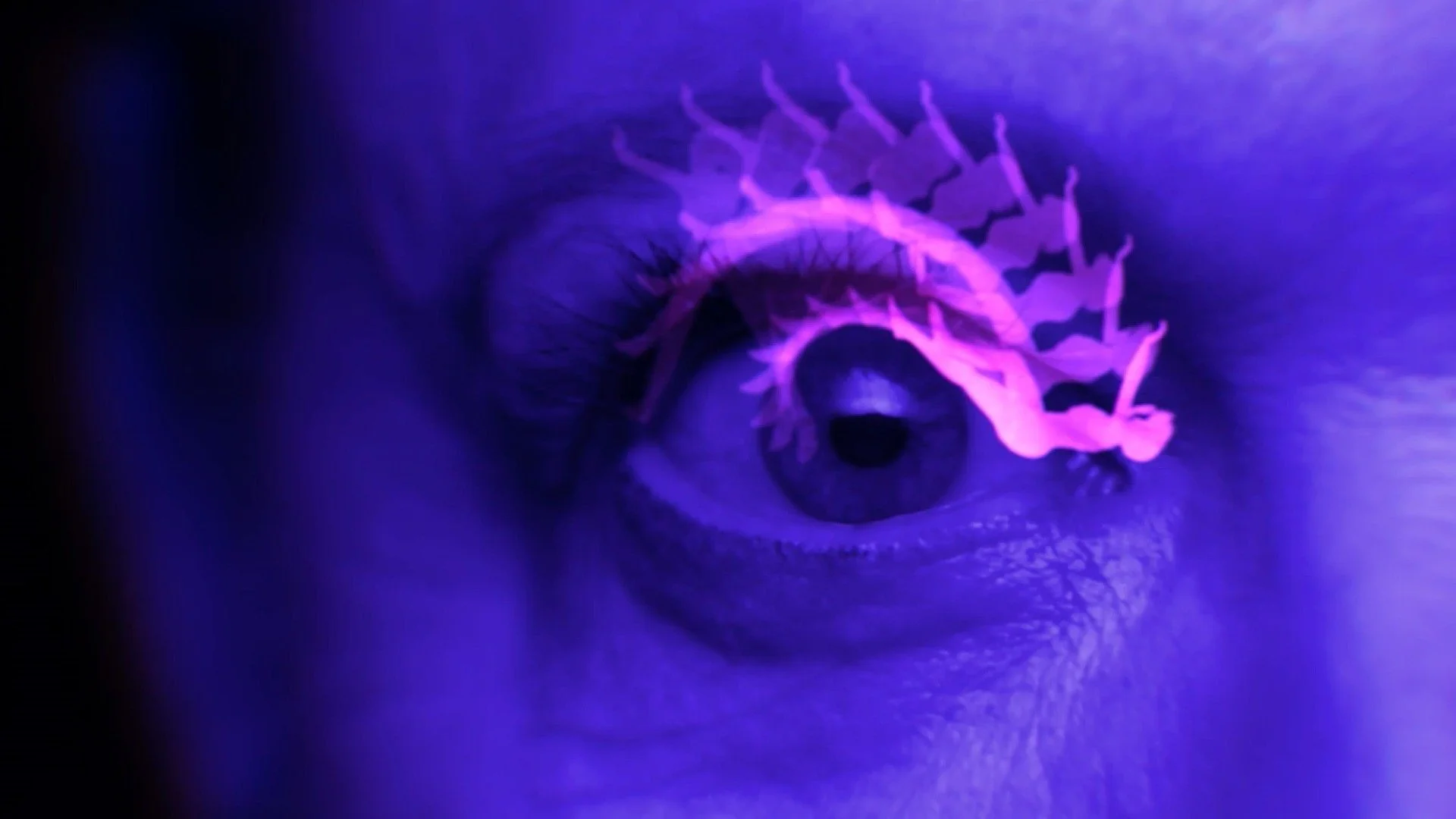Brainwashed: Sex-Camera-Power
In her articulate and exhaustively researched documentary, Nina Menkes examines the misogyny of cinema and how the male gaze is written into the very grammar of film.
This unusual documentary is an expansion of a lecture given by the filmmaker Nina Menkes under the title ‘Sex and Power, the Visual Language of Oppression’. In addition to actual scenes from that lecture, this version brings us comments by way of interview footage and in all probability includes even more film clips than were used in the lecture itself (there is a plethora of them, some so brief as to have little point). What we have here under the amended title Brainwashed: Sex–Camera–Power is a visual essay which brings to mind one of the best documentaries of 2022. In Is That Black Enough for You?!? Elvis Mitchell looked back on that key decade for black cinema – the 1970s – and invited viewers to understand what those films meant to him as a black American teenager. Similarly, the aim here of Nina Menkes is to make all viewers of her film look afresh at cinema’s sexual scenes and to see them from her viewpoint. She is, of course, a woman acutely aware of how Hollywood in particular when presenting images of women on screen has always embraced what film theorist Laura Mulvey dubbed the male gaze. The filmmaker’s passionate concern is undoubted but Menkes is much less adroit than Mitchell was in developing her material to best advantage.
The opening segment of Brainwashed very much concentrates on how film directors choose to shoot footage of women in contrast to the way in which they present men. This is illustrated in terms of such matters as framing, camera movement, lighting and the viewpoint in which women become the object as seen through male eyes. We can certainly see what Menkes is getting at, but the clips are presented without narrative context so that there is no recognition of the story being told and of how what we see may well be expressing the viewpoint of a male character without the filmmaker necessarily endorsing that character’s view. Menkes is altogether too ready to conflate the director’s own attitude with that of some male character. At least she is ready to stick to her guns by being critical about films that it is fashionable to admire from Spike Lee's Do The Right Thing (1989) to the recent Wonder Woman films made by Patty Jenkins to Sofia Coppola’s Lost in Translation (2003). But when it comes to The Hurt Locker (2008), a film set in a macho male world brilliantly captured by its director Kathryn Bigelow, she can’t praise that achievement but can only condemn the film for being a wholly male project apart from Bigelow. Furthermore, there is the irony that by pressing her argument through so many clips Menkes herself offers a film in which those who embrace the male gaze in its most questionable aspects may take delight!
To stress the kind of sexual images found in movies could be considered a sufficient subject in itself but Menkes is intent on going beyond that. She starts from cinema but then seems to blame films for sexual and abuse and assault wherever it is found: there is no recognition that films can be a reflection of our society but rather a belief that film images are so powerful that they are responsible for the state of society that has led to the need for the #MeToo movement. Pornography on the web gets no mention and nor does the impact of censorship standards changing and affecting what can be shown on screen. There is weight, however, when it comes to the emphasis on film being a male dominated industry which leads to the green-lighting of movies that readily indulge the male gaze. Menkes chooses to include extracts from her own works and there is stress on female directors like Julie Dash who share her desire to make films which deliberately seek to view women in a different light. However, there is no real examination of women filmmakers whose works are akin to those of male directors and no comment on the Hollywood era of women's pictures, that heyday of Bette Davis (Brainwashed does underline in passing women's role in silent pictures but for the most part concentrates on the movies of the past fifty years or so albeit largely ignoring the frequent victimisation of women in horror films which could be considered misogynistic).
There is no doubt that Menkes has made a film that fully expresses views that have for some time been heard in film lectures but which have not had the wider platform of being presented in a feature film. To that extent Brainwashed can be welcomed but, while it may stimulate thought, its viewpoint could have been much better argued and its attempt to indict cinema as the prime source of society’s failure to treat women fairly seems absurdly exaggerated.
MANSEL STIMPSON
Featuring Nina Menkes, Rosanna Arquette, Charlyne Yi, Julie Dash, Penelope Spheeris, Laura Mulvey, Catherine Hardwicke, Eliza Hittman, Ita O’Brien, Joey Soloway, May Hong HaDuong, Rhiannon Aarons, Kathleen Tarr, Sachiko Taki-Reece, Mary Montañez Smukler, Iyabo Kwayana, Lara Dale, Nancy Schreiber.
Dir Nina Menkes, Pro Nina Menkes, Screenplay Nina Menkes, Ph Shana Hagan, Set Des Mengoing Yuan, Ed Cecily Rhett, Music Sharon Farber, Costumes Sam Novick, Sound Lucas Fehring.
Menkes Film/EOSWorld Fund-British Film Institute.
107 mins. USA. 2022. UK Rel: 12 May 2023. Cert. 18.


